第30章 Chapter (5)
Weems, speaking for General Horry, says, "I never beheld Marion in so great a passion. I was actually afraid he would have broken out on General Lincoln. `My God!' he exclaimed, `who ever heard of anything like this before? First allow an enemy to entrench, and then fight him!
See the destruction brought upon the British at Bunker's Hill --yet our troops there were only militia; raw, half-armed clodhoppers, and not a mortar, or carronade, not even a swivel -- only their ducking-guns!
What, then, are we to expect from regulars, completely armed, with a choice train of artillery, and covered by a breastwork.'"--
* Major-General T. Pinckney's account of the siege of Savannah, quoted by Garden.
--
The anticipations of Marion were fully realized. When the junction of the French and American armies was effected, it was determined to reduce the place by siege. Batteries were to be erected, and cannon brought from the ships, a distance of several miles.
Meanwhile, the works of the besieged were undergoing daily improvements, under an able engineer. Several hundred negroes were busy, day and night, upon the defences, stimulated, when necessary, to exertion, by the lash. On the 4th of October the besiegers opened with nine mortars and thirty-seven pieces of cannon from the land side, and sixteen from the water. They continued to play for several days, with little effect, and the anxiety of the French admiral to leave the coast, at a season of the year when it is particularly perilous to shipping to remain, determined the besiegers to risk everything upon an assault.
The morning of the 9th October was fixed upon for the attack.
The American army was paraded at one o'clock that morning, but it was near four before the head of the French column reached the front.
"The whole army then marched towards the skirt of the wood in one long column, and as they approached the open space, was to break off into the different columns, as ordered for the attack.
But, by the time the first French column had arrived at the open space, the day had fairly broke; when Count D'Estaign, without waiting until the other columns had arrived at their position, placed himself at the head of his first column, and rushed forward to the attack."*This was creditable to his gallantry, if not to his judgment.
But it was valor thrown away. "The column was so severely galled by the grape-shot from the batteries, as they advanced, and by both grape-shot and musketry, when they reached the abbatis, that, in spite of the efforts of the officers, it got into confusion, and broke away to their left, toward the wood in that direction;the second and third French columns shared, successively, the same fate, having the additional discouragement of seeing, as they marched to the attack, the repulse and loss of their comrades who had preceded them. Count Pulaski, who, with the cavalry, preceded the right column of the Americans, proceeded gallantly, until stopped by the abbatis; and before he could force through it received his mortal wound."**The American column was much more successful. It was headed by Colonel Laurens, with the Light Infantry, followed by the Second South Carolina Regiment, of which Marion was second in command, and the first battalion of Charleston militia. This column pressed forward, in the face of a heavy fire, upon the Spring Hill redoubt, succeeded in getting into the ditch, and the colors of the second regiment were planted upon the berm. But the parapet was too high to be scaled under such a fire as proceeded from the walls, and, struggling bravely but vainly, the assailants were, after suffering severe slaughter, driven out of the ditch. This slaughter was increased in the effort to retain and carry off in safety the colors of the regiment.
--
* Major-General Thomas Pinckney, in a letter quoted by Garden.
** Major-General Thomas Pinckney. See Garden.
--
These colors, as we have seen, were the gift of a lady. Moultrie, in the name of the regiment, had promised to defend them to the last.
The promise was faithfully remembered in this moment of extremity.
One of them was borne by Lieutenant Bush, supported by Sergeant Jasper;the other by Lieutenant Grey, supported by Sergeant M'Donald. Bush being slightly wounded early in the action delivered his standard to Jasper, for better security. Jasper a second time and now fatally wounded, restored it to the former. But at the moment of taking it, Bush received a mortal wound. He fell into the ditch with his ensign under him, and it remained in possession of the enemy. The other standard was more fortunate. Lieutenant Grey, by whom it was borne, was slain, but M'Donald plucked it from the redoubt where it had been planted, the moment the retreat was ordered, and succeeded in carrying it off in safety. The repulse was decisive. The slaughter, for so brief an engagement, had been terrible, amounting to nearly eleven hundred men; 637 French, and 457 Americans. Of the former, the Irish Brigade, and of the latter the 2d South Carolina Regiment, particularly distinguished themselves and suffered most.
The loss of the British was slight; the assailants made no impression on their works. "Thus was this fine body of troops sacrificed by the imprudence of the French General, who, being of superior grade, commanded the whole.* In this battle Jasper was mortally wounded.
He succeeded in regaining the camp of the Americans. The fatal wound was received in his endeavor to secure and save his colors.
Another distinguished personage who fell in this fatal affair, was Col. Count Pulaski, a brave and skilful captain of cavalry, better known in history for his attempt upon the life of Stanislaus Poniatowski, King of Poland.
--
* Major-General T. Pinckney.
--